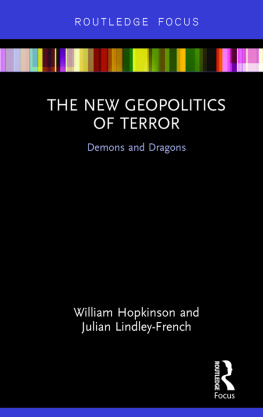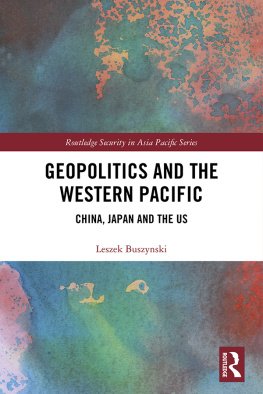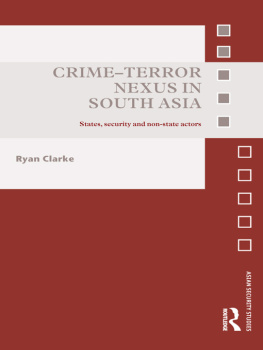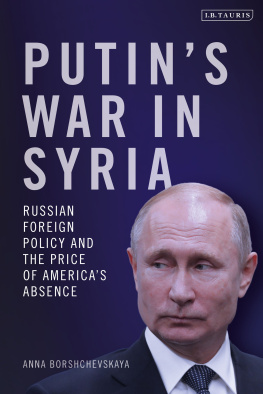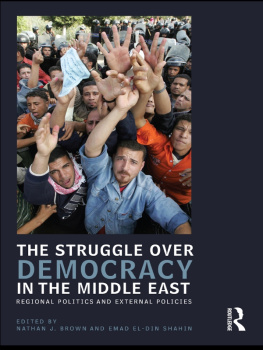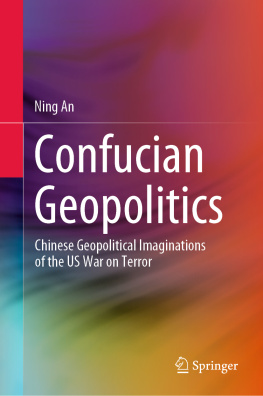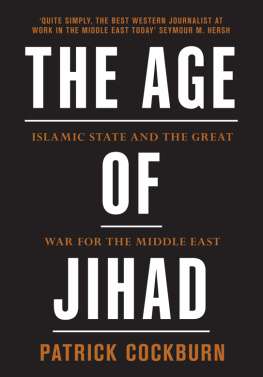The New Geopolitics of Terror
The New Geopolitics of Terror examines the impact of global reach terror on states.
This book surveys the current crises and tensions in the Middle East, focussing primarily on the upheavals in Syria and Iraq, and the interaction between groups, such as Al Qaeda and ISIS state actors and Western security. It explains the threat to Western interests and states from wide-reaching Islamic terrorism, geopolitical intervention by outside actors and regional power struggles. It critiques the inadequate political, military and diplomatic responses from Western powers, and the lack of effective leadership, highlighting the potential dangers should the West fail to remedy these. The book also identifies the difficulties and dangers of continued Western involvement in the Middle East, and proposes specific actions and interventions in order to prevent further deterioration in the region and in Western societies. Specifically, the book calls for a grand strategy underpinned by political ambition that combines diplomatic, political, economic and military measures, calls for effective counter-terrorism measures in more resilient Western societies, and highlights the importance of the role that global players outside those regions can and must play if peace is to be restored.
Written by two leading scholars, this book will be of much interest to students of terrorism studies, strategic studies, defence studies, Middle Eastern politics and IR in general.
William Hopkinson is a former Director of Studies and Deputy Director of the Royal Institute of International Affairs (Chatham House) and Assistant Secretary of State (Policy) in the Ministry of Defence, London.
Julian Lindley-French is a strategic analyst and Vice President of the Atlantic Treaty Association. He is the author of numerous titles, including The Oxford Handbook of War (edited with Yves Boyer, 2012) and NATO: The Enduring Alliance (Routledge 2015).
First published 2017
by Routledge
2 Park Square, Milton Park, Abingdon, Oxon OX14 4RN
and by Routledge
711 Third Avenue, New York, NY 10017
Routledge is an imprint of the Taylor & Francis Group, an informa business
2017 William Hopkinson and Julian Lindley-French
The right of William Hopkinson and Julian Lindley-French to be identified as authors of this work has been asserted by them in accordance with sections 77 and 78 of the Copyright, Designs and Patents Act 1988.
All rights reserved. No part of this book may be reprinted or reproduced or utilised in any form or by any electronic, mechanical, or other means, now known or hereafter invented, including photocopying and recording, or in any information storage or retrieval system, without permission in writing from the publishers.
Trademark notice: Product or corporate names may be trademarks or registered trademarks, and are used only for identification and explanation without intent to infringe.
British Library Cataloguing in Publication Data
A catalogue record for this book is available from the British Library
Library of Congress Cataloging in Publication Data
A catalog record for this book has been requested
ISBN: 978-1-138-21184-1 (hbk)
ISBN: 978-1-315-45201-2 (ebk)
Typeset in Times New Roman
by Apex CoVantage, LLC
Contents
William Hopkinson read history at Pembroke College Cambridge and served in four departments of the UK Home Civil Service. He was appointed head of the Defence Arms Control Unit in 1988 and in 1993 became Assistant under Secretary of State (Policy) during which time he was particularly concerned with the former Warsaw Pact and European security institutions including NATO, Western European Union and European Union matters. He was also responsible for counter-terrorism policy, Northern Ireland issues and a major Outreach programme helping defence and security institutional reform in the former Warsaw Pact countries. He was Visiting Fellow in the Global Security Programme, Cambridge, from 1991 to 1992. On leaving government service in 1997, he joined the Royal Institute of International Affairs (Chatham House), becoming Deputy Director and Director of Studies before retiring in June 2000 to read and write as an independent researcher.
Julian Lindley-French was educated at Oxford, UEA and the European University Institute in Florence. Professor Dr Julian Lindley-French is Vice President of the Atlantic Treaty Association, Senior Fellow at the Institute for Statecraft in London, Director of Europa Analytica in the Netherlands, Distinguished Visiting Research Fellow at the National Defense University in Washington, as well as a Fellow of the Canadian Global Affairs Institute. He is also Strategic Programme Advisor at Wilton Park. His major publications include A Chronology of European Security and Defence (2008) and The Oxford Handbook of War (2012) for Oxford University Press. In February 2015 he published Little Britain? Twenty-First Century Strategic Challenges for a Middling European Power , and in July 2015 he published NATO: The Enduring Alliance 2015 for Routledge.
By General (Retd.) John C. Allen, USMC
For context, Ive fought in the Al Anbar Province of Iraq in 2007, its most violent year; I was the Deputy Commander of the US Central Command for three years, a time when we managed two wars in Iraq and Afghanistan, contained Iran, and reacted to the earliest indications of the so-called Arab Spring in the 2011; and I led our NATO forces in Afghanistan from 2011 to 2013. After retirement, as Senior Advisor to the Secretary of Defense, I oversaw the security dialog with Israelis, Palestinians, and Jordanians from 2013 to 2014 until the most recent Gaza war put paid to that endeavor; and I assisted President Obama with the formation of the global coalition to counter ISIL, traveling to thirty countries in fourteen months. These duties culminated a lifetime of my military and diplomatic service in the Middle East. From the moment I arrived off the coast of Lebanon in 1985, a captain commanding a Marine rifle company with the US Sixth Fleet, I have seen the steady, inexorable unraveling of the cohesion and governance of the region. And while the Arab Spring was the most recent manifestation of the structural weaknesses in the governance of the region, there appears to be no short-term solution that can arrest this continued deterioration. In one form or another Ive touched nearly all the hotspots and seen or experienced up close the unresolved causal factors, and Ive wondered if we were ever to find a way out of this wilderness of violence and instability.
Three years on, after the beginning of the Arab Spring, in the summer of 2014, the Obama national security team huddled in Washington to consider its options regarding the so-called Islamic State in Iraq and the Levant (ISIL), only the latest symptom of this regional crisis. One of the first questions to be answered by the team was the one most emblematic of the state of a region wracked with a chaos greater than at any point in the last fifty years: would the outcome of the American intervention in the region to halt ISIL seek to restore the rough contours the status quo ante of the SykesPicot agreement, or would we look for some other governance formulation?
In its own answer to this question, ISIL was by then already busily bulldozing the trace of the Iraqi/Syrian border, with the explicit intention of eradicating the vestiges of the Western-imposed borders of the region. Though only partially implemented, the results of the SykesPicot Agreement and other postWorld War I, post-Ottoman territorial arrangements by the conquering powers had arguably created a near-inoperable political equilibrium, and now, nearly a century on, these irreconcilable forces were finally tearing the region apart, and not solely, or even mostly, with the emergence of the so-called Islamic State of Iraq and the Levant or ISIL.

